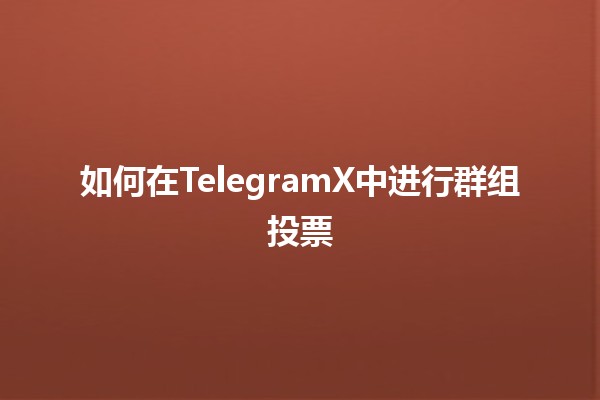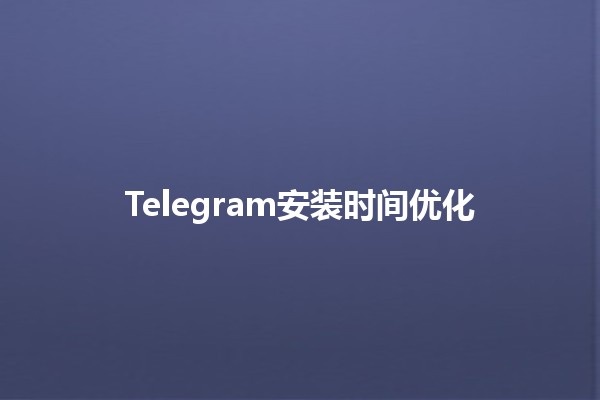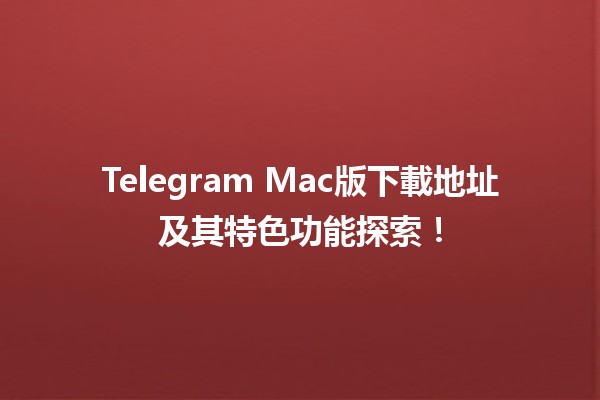Organizing Your Downloads After Installing Telegram: A Comprehensive Approach!

In the digital age, instant messaging applications have become an integral part of our everyday communication. Among them, Telegram has carved a niche for itself with its robust features and userfriendly interface. One of the key functionalities that Telegram offers is the ability to exchange various types of files seamlessly. However, managing these files postdownload can often become overwhelming, especially if one is not equipped with effective organizational strategies. This article aims to explore practical methods for categorizing and managing files downloaded from Telegram, ensuring that your digital workspace remains clutterfree and efficient.
Understanding Telegram’s Download Functionality

Before diving into the organizational strategies, it's essential to understand how Telegram handles file downloads. Telegram allows users to send and receive a wide array of files—from images and videos to documents and voice messages. When files are downloaded, they are typically stored in the device's default download folder or a specified directory.
Key Features of Telegram Downloads:
The Importance of File Organization
Organizing files efficiently after downloading from Telegram is essential for various reasons:
Improved Accessibility: Properly organized files can be retrieved quickly, minimizing wasted time searching through cluttered directories.
Enhanced Productivity: A systematic approach to file management can lead to increased productivity, allowing you to focus on more critical tasks rather than sorting through disorganized files.
Reduced Stress: Clutter can lead to unnecessary mental strain. Handling files in a structured manner can alleviate this burden, creating a more pleasant digital workspace.
Strategies for Organizing Telegram Downloads
To effectively categorize files downloaded from Telegram, consider the following strategies:
One of the simplest yet most effective methods for organizing downloads is to create dedicated folders based on file types or projects. Here’s how you can go about it:
By File Type: Create individual folders for different file types, such as ‘Images,’ ‘Videos,’ ‘Documents,’ and ‘Audio Files.’ This way, whenever you download a file, you can immediately place it in the corresponding folder.
By Projects or Events: If you frequently receive files related to specific projects or events, consider creating folders named after those projects or events. This approach can be particularly useful for professionals managing multiple clients or campaigns.
By Date: Some users prefer to organize files by date, ensuring that they can easily locate files from a particular timeframe. You can create monthly or yearly folders and label them accordingly.
Depending on the operating system or file management application you use, tagging files can significantly enhance your organization efforts. Tags allow you to assign keywords to files, making it easier to search for them later. Here’s how to implement tagging effectively:
Descriptive Tags: Use descriptive tags that relate to the content of the file, such as ‘Project XYZ,’ ‘Client Meeting,’ or ‘Personal.’ This makes it easier to locate files when using search functionalities.
Combination Tags: Create tags that combine different elements, like ‘2023_Reports_Client A,’ allowing for more refined searches based on multiple criteria.
In addition to local file organization, consider integrating cloud storage solutions. Cloud services like Google Drive or Dropbox offer a higher degree of accessibility and collaboration. Here’s how to leverage cloud storage for your Telegram downloads:
Automatic Uploads: Some cloud services allow for automatic uploads of specific folders. If you have a dedicated Telegram folder, set it up so that every file downloaded is automatically stored in the cloud.
Sharing and Collaboration: If you work in teams, cloud services facilitate easier sharing of documents. Create shared folders for collaboration, ensuring that all team members have access to relevant files.
Accessibility From Various Devices: By storing files in the cloud, you can access them from any device with an internet connection, promoting flexibility and mobility.
Over time, your downloaded files can accumulate, leading to disorganization. To combat this:
Regular Review Sessions: Schedule regular intervals (e.g., monthly or quarterly) to review your folders and files. Delete items that are no longer needed, ensuring that your digital space remains clutterfree.
Archive Old Files: If you have files that are not immediately necessary but could be needed later, consider archiving them in separate folders that are not part of your daily access.
Update Folders and Tags: As projects evolve, adjust your folder structure or tags to reflect current needs. Flexibility in your organization strategy can help accommodate new projects or shifts in focus.
Best Practices to Remember
Successfully managing and organizing files downloaded from Telegram is a key step toward maintaining productivity and efficiency in an increasingly digital world. By implementing the strategies outlined above, you can create an orderly system that allows for quick retrieval of files, a reduction in clutter, and a smoother workflow.
Remember, the goal of file organization is not just aesthetics; it’s about creating a functional method that serves your needs and works harmoniously with your personal or professional projects. As we continue to rely on digital communication tools like Telegram, fostering good organizational habits will empower you to navigate your digital landscape with ease!
Other News

如何在TelegramX中进行群组投票 🤖📊

Telegram安装时间优化 🚀📱

Telegram Mac版下載地址及其特色功能探索!
